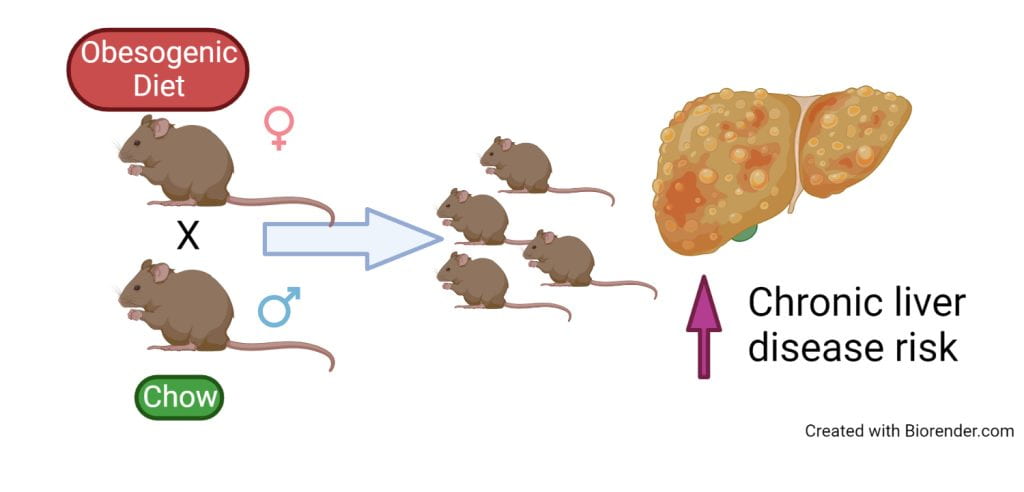
Evaluating the role of maternal obesogenic diet exposure on offspring fatty liver disease
Clinical and animal model evidence shows that maternal obesity/obesogenic diet enhances development of progressive non-alcoholic fatty liver disease in the offspring, however the underlying mechanisms have not been defined. To study this, we utilize a mouse model of maternal obesogenic diet exposure (MODE). Preliminary data show that MODE alters the offspring microbiome and these changes contribute to offspring susceptibility to liver disease. Ongoing studies in the lab are defining the mechanisms for how the altered microbiome leads to liver disease in the offspring.
Define the mechanisms of altered bile acid homeostasis in offspring exposed to maternal obesogenic diet
In our MODE model, we have identified changes in offspring bile acid homeostasis which could contribute to hepatic pathophysiology. Current studies are evaluating the mechanism of changes in bile acid homeostasis with a particular focused on the microbiome and shifts in bile acid metabolism/transport. The lab is also evaluating how these changes impact liver pathology in the offspring.
Evaluating maternal exercise as an intervention to prevent developmental programming of liver disease in offspring
Maternal exercise has been shown to cause numerous beneficial effects on offspring metabolic health including improvement in glucose metabolism and offspring weight. We are evaluating the benefit of maternal exercise on offspring liver health with a focus on prevention of offspring NAFLD. We are utilizing our mouse models of MODE and maternal exercise to define the mechanisms for the beneficial effects of exercise in the offspring.
Evaluating the role of paternal obesogenic diet on offspring risk for liver disease
While much work has been done to evaluate the effects of maternal obesity on offspring, less is understood about the effects of paternal obesity. Preliminary evidence suggest that paternal obesogenic diet exposure in mice leads to increased hepatic steatosis in offspring fed a western diet. We are utilizing a mouse model of paternal obesogenic diet exposure to evaluate the impact of offspring liver disease with a particular focus on NAFLD and cholestatic liver disease.